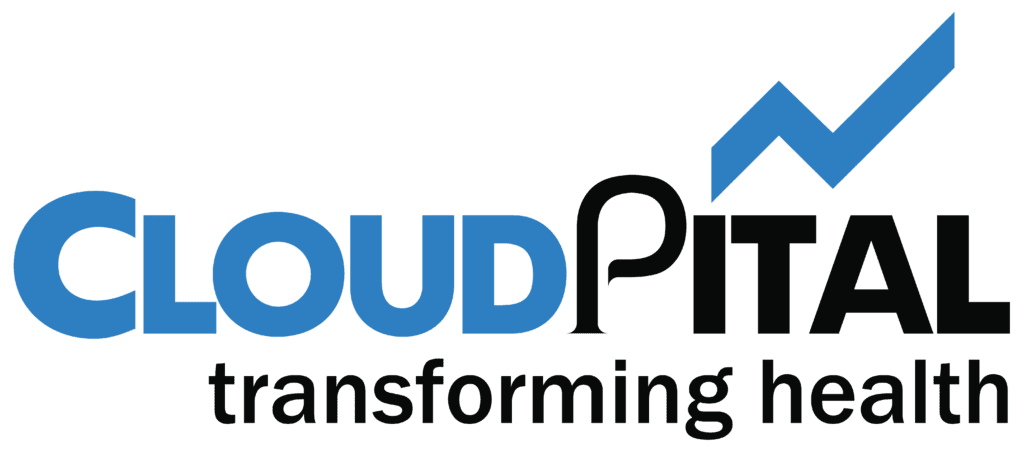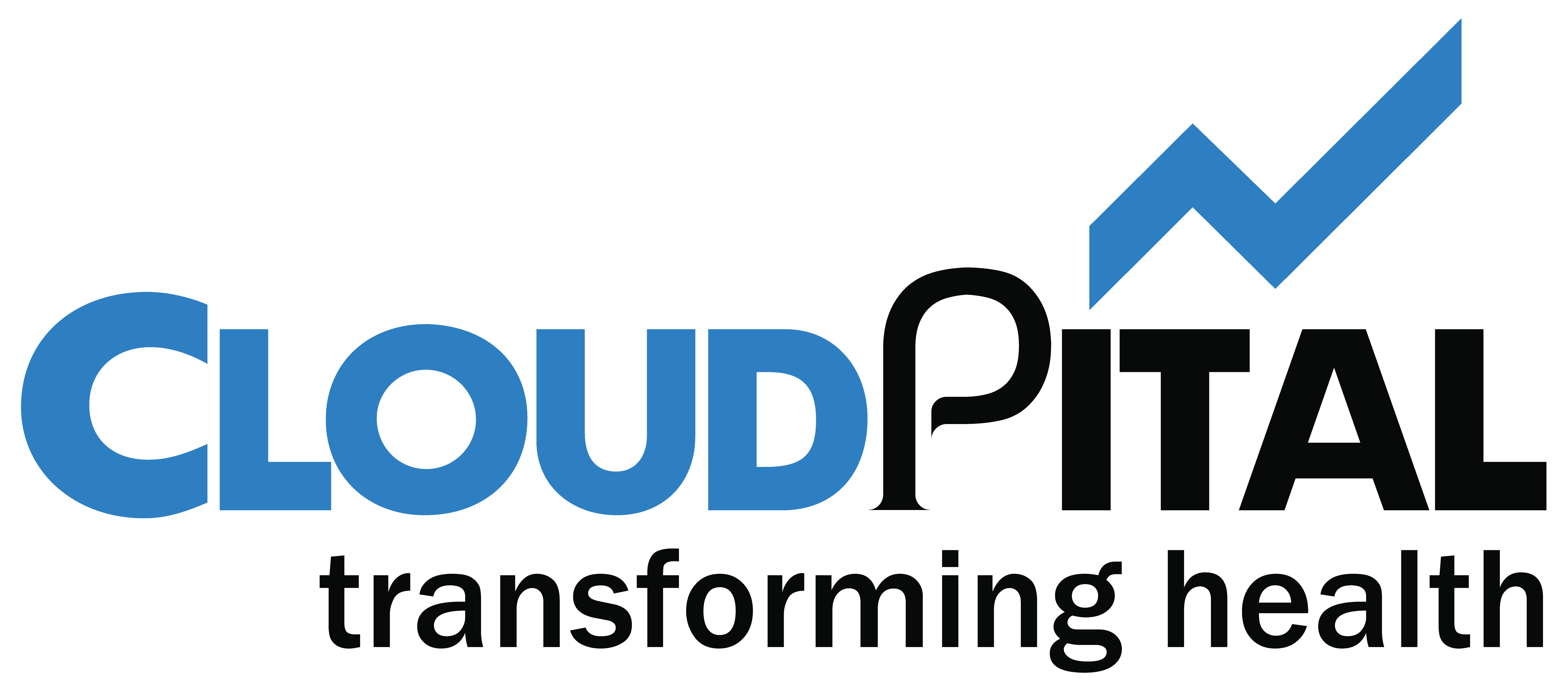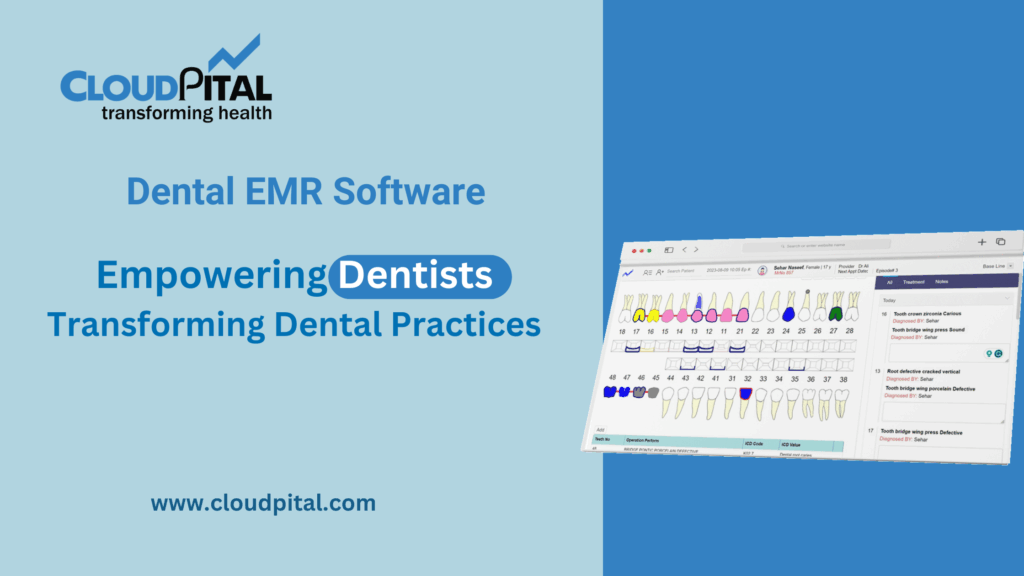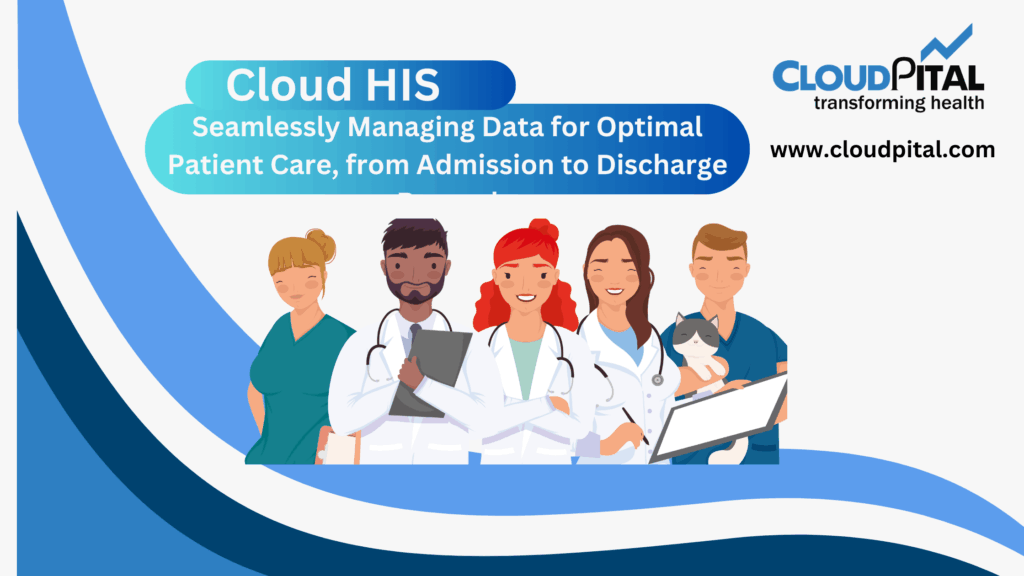Cloudpital # 1 one of the top PMS goes up for health organizations and forms the actual efficiency, patient satisfaction, and overall success of their operations. Increasing demands for accuracy, regulatory compliance, and patient care make it essential to carry out work without clerical hassles. A Practice Management System plays a very important role here. Solutions of PMS offer healthcare providers strong, centralized platforms through which day-to-day activities can be managed more efficiently.
Cloudpital # 1 PMS
 We will discuss in this blog how Practice Management Systems streamline different administrative work items in the healthcare sector, improve operational effectiveness, and enhance patients’ outcomes.
We will discuss in this blog how Practice Management Systems streamline different administrative work items in the healthcare sector, improve operational effectiveness, and enhance patients’ outcomes.
What is a Practice Management System?
A Practice Management System refers to an application developed to automate and simplify the administrative and financial running of healthcare practices. It can cover core functions such as scheduling, billing, management of patient information, reporting, and workflow management. Through central management, PMS can enable healthcare providers concentrate more on the delivery of quality care while decreasing the load of shrewd manual administrative tasks.
Key Ways PMS Streamlines Administrative Tasks
Efficient Appointment Scheduling and Management
Managing appointments is one of the most administrative time-consuming tasks for the health care provider, but a Practice Management System streamlines the whole process using automated scheduling, making it easy to book, cancel, or reschedule appointments.
Real-time scheduling: PMS integrates real-time data to show availability at once, reducing conflicts and double bookings in scheduling.
Automated reminders: Most systems have automated appointment reminders sent via SMS or email to reduce no-shows and thus increase overall productivity at the clinic.
Regulation of the lists: In case an appointment is cancelled, the automated system of the computerized hospital management software should be able to automatically fill up with a patient coming into the waitlist to use up time to its optimal limit.
Thus, streamlined scheduling processes can reduce admin bottlenecks in patients’ inflow that healthcare organizations need to manage efficiently.
Improve patient registration and check-in
The registration and check-in processes of olden days are mostly done with the help of manual approaches, where the patients will record themselves on paper, which then is entered by the staff to the system. This consumes much time, and the possibility for error is high. An electronic patient registration capability of a Practice Management System is an integration that allows patients to open a new account and register themselves directly over the online portal or a self-service kiosk. This saves a lot of paperwork and also provides error-free data that is digitally stored for subsequent use.
Pre-registration functions: Patients are permitted to fill up forms and provide information before their visit to the clinic, thus eliminating wait times during check-in.
Automated data validation: the PMS can validate insurance details and contact information automatically and update records automatically, so the task of manual data entry is completely eliminated.
This benefits streamlines the patient experience and also enables administrative staffs to focus on higher-level complexities.
Integrated Billing and Revenue Cycle Management
Billing and RCM are considered some of the most complicated administrative tasks in the healthcare service industry. The risks lie from proper coding to claims management and payments, all of which can lead to financial loss when carried out incorrectly. PMS automates a large segment of billing work, thus resulting in accuracy and acceleration of the pay cycle.
Automated coding: PMS ensures that correct medical codes are submitted for billing, hence claims are less likely to be denied for errors in coding.
Claims management: The system submits all claims automatically and follows up on all the processes without fail, with appropriate alerts sent to staff whenever the claim is denied or rejected. It speeds up the settlement of disputes and facilitates faster payments.
Integrated payment processing: PMS allows for the interface with payment gateways to speedily and conveniently collect patient co-pays and outstanding balances online and in person.
Effective billing and RCM will optimize the cash flow of providers while reducing the administrative workload from payment management and claims.
Patient Record Management and Accessibility
Managing patient records manually is cumbersome, time-consuming, and error-prone. A Practice Management System is a way to digitize patient records by ensuring a safe, organized location where all the information on a patient, like medical history, insurance, treatment plan, and billing records can be stored easily.
EHR: Many PMS solutions integrate EHR systems to ensure that data flows seamlessly between administrative and clinical functions.
Quicker access to records: Faster access to patient information supports authorized staff in responding to patients more efficiently, and more customized and informed care may be produced.
HIPAA Compliance: PMS solutions help health organizations achieve compliance with data-protection regulations such as HIPAA by offering secure access controls and providing audit trails for patient records.
The automation of record management will minimize errors, save time, and develop the security and integrity of data used in health practices.

Simplified Workflow and Task Management
RCM optimize workflow from routine automation to putting all of one’s administrative work together under one platform. Coordination of tasks from check-in to billing can be accomplished using a single interface without multiplying systems.
Automation of tasks: Routine tasks, like sending reminders or verifying insurance or making reports, can be automated, allowing staff to have more time for higher-value activities.
Workload Balancing: PMS allows the personnel to distribute the workload as well as monitoring assignments in a much more streamlined manner so that no crucial assignment is missed and workloads are not uneven in case of one or the other thing.
Real-time Updates: It will provide proper coordination and communication within the practice for any real-time update in the status of the assignments, meetings, or billing.
Thus, administrative errors are less likely to occur because of streamlined processes, and the healthcare facility works in a much more efficient manner.
Communication and Cooperation
Proper communication is critical to the seamless running of any healthcare practice. A practice management system also improves communication through proper provision of an integrated platform for messaging and sharing information.
Internal Messaging: The PMS system securely allows staff to communicate with each other on issues, ensuring important messages reach quickly.
Patient communication: PMS is equipped with automated reminder features, test results follow-up, and appointment confirmations. Patients can use the system to send queries or retrieve their records that will increase the engagement.
Multi-location support: In an organization that houses multiple locations, the PMS is well placed to centralize all the communication channels in all the facilities, thus ensuring that the operations as well as the patient care offered follows the same thread.
Through enhanced communication and cooperation, PMS ensures that the staff is always in line and that the patient is also adequately informed; thus, it becomes relatively easier.
Reports and Analytics Correct
Healthcare providers rely significantly on the availability of accurate real-time data points to make sound decisions. The Practice Management System delivers full reports relating to aspects such as appointment trends and all lines of revenue cycles, aspects of the demographics concerned with patient flow, and staff performance.
Financial reporting: PMS allows health practitioners all the reports indicating a transparent picture regarding the financial status, to identify various areas of improvement.
Performance metrics: It enables systems tracking the performance of staff, with regards to patient wait times and billing accuracy, to enhance more judicious resource and personnel management.
Patient care analytics: The analytics of the patient care enable providers to identify the patterns, trends, and areas of improvement in the treatment and services delivery.
With this knowledge, healthcare organizations can shape their operations, enhance care for patients, and maximize profits.
Compliance with Regulation
Healthcare providers have to comply with a diverse array of regulatory requirements-HIPAA, insurance regulations, and health codes of the local area. Practice management systems ensure compliance by automatically handling data-related processes; billing processes; and reporting processes.
Audit trails: EMR Systems keeps a record of everything happening within the system. This simplifies audits and regulatory checks.
Coding compliance: The software facilitates proper and error-free medical coding in accordance with industry standards. This reduces the rejection or penalty on claims.
Data security: PMS solutions from various providers have some in-built security for patient data to prevent intruders or breaches.
A Practice Management System reduces the risks associated with legal penalties and helps in maintaining the reputation of healthcare organizations due to the streamlining and automation of regulatory compliance.
Conclusion
Healthcare providers need a Practice Management System that can simplify administrative processes. With appointment scheduling, billing, and other process steps streamlined and simplified, PMS empowers healthcare providers to perform business operations in a more productive manner, reduce administrative burdens, and most importantly, allows them to allocate more time and resources toward what it is best—their patients.
As such, a PMS solution is certainly no longer optional but indispensable for an organization interested in optimizing patient experience and ultimate operational success within the healthcare industry. One can avoid being left behind in this ostensibly simple but increasingly complicated competitive environment for sure by instead maximizing one’s potential using PMS to optimize processes.
Click to Start Whatsapp Chatbot with Sales
Mobile: +966502737333
Email: sales@cloudpital.com
You can explore our other blogs
How Can a PMS Streamline Administrative Tasks in Healthcare? similar software solutions prices were updated on 2025-07-05T16:55:29+00:00 in Saudi Arabia in Mecca, Medina, Riyadh, Khamis Mushait, Yanbu, Jeddah, Dammam, Unaizah, Uqair, Ha’il, Ta if, Al Bahah, Dhahran, King Abdullah Economic City, Najran, Diriyah, Qatif, Khafji, Jubail, Abqaiq, List of Cities and Towns in Saudi Arabia, Ras Tanura, Turubah, Jazan Economic City, Knowledge Economic City, Medina, Khobar, Abha, Tabuk, Saudi Arabia, similar software solutions prices were updated on 2025-07-05T16:55:29+00:00 We also provide in Saudi Arabia services solutions company in Hafar Al-Batin, Udhailiyah, Al-Awamiyah, Hofuf, Hautat Sudair, Buraidah, Tayma, Duba, ‘uyayna, Saihat, Al-Kharj, Al-ula, Jizan, Rumailah, Ar Rass, Arar, Shaybah, Al Majma’ah, Rabigh, Dhurma, Haradh, List of Saudi Cities by Gdp Per Capita, Badr, Sudair Industrial City, Baljurashi, Shaqraa, Al-Khutt, Habala, Ad Dawadimi, Dawadmi, Layla, similar software solutions prices were updated on 2025-07-05T16:55:29+00:00 Price is SAR 100 and this was updated on updated on 2025-07-05T16:55:29+00:00 similar How Can a PMS Streamline Administrative Tasks in Healthcare? software solutions prices were updated on 2025-07-05T16:55:29+00:00 in Saudi Arabia in Haql, Afif, Al-Abwa, Farasan, Al-Jaroudiya, Thadig, Al-Thuqbah, Al Wajh, Almardmah, Al-Zilfi, Muzahmiyya, Prince Abdul Aziz Bin Mousaed Economic City, Tharmada’a, Skaka, Um Al-Sahek, Sharurah, Tanomah, Bisha, Dahaban, Al Qunfudhah, Qurayyat, Saudi Arabia, Ha’ir, as Sulayyil, Al Lith, Turaif, Al-Gway’iyyah, Samtah, Wadi Ad-Dawasir, Az Zaimah, Safwa City, Jalajil, Harmah, Mastoorah, Hotat Bani Tamim, Jabal Umm Al Ru’us, Rafha, Qaisumah, Al-Ghat, Hajrah, Al-Hareeq. Excerpt: Jeddah (also spelled Jiddah, Jidda, or Jedda; Arabic: Jidda) is a Saudi Arabian city located on the coast of the Red Sea and is the major urban center of western Saudi Arabia similar software solutions prices were updated on 2025-07-05T16:55:29+00:00 Price is SAR 100 and this was updated on updated on 2025-07-05T16:55:29+00:00
10-8-2024




